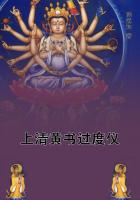"I know it, I know it," she said; "cherub angels!" And as she spoke she looked up into the ugly face of Marcus Aurelius, for they were standing at the moment under the figure of the great horseman on the Campidoglio. "I have seen them, and they are children of innocence. If all the blood of all the Howards ran in their veins it could not make their birth more noble!"
"Not if the father and mother of all the Howards had never been married," said Mackinnon.
"What! that from you, Mr. Mackinnon!" said Mrs. Talboys, turning her back with energy upon the equestrian statue and looking up into the faces first of Pollux and then of Castor, as though from them she might gain some inspiration on the subject, which Marcus Aurelius in his coldness had denied to her. "From you, who have so nobly claimed for mankind the divine attributes of free action! From you, who have taught my mind to soar above the petty bonds which one man in his littleness contrives for the subjection of his brother. Mackinnon--you who are so great!" And she now looked up into his face. "Mackinnon, unsay those words."
"They /are/ illegitimate," said he, "and if there was any landed property--"
"Landed property! and that from an American!"
"The children are English, you know."
"Landed property! The time will shortly come--ay, and I see it coming --when that hateful word shall be expunged from the calendar, when landed property shall be no more. What! shall the free soul of a God-born man submit itself for ever to such trammels as that? Shall we never escape from the clay which so long has manacled the subtler particles of the divine spirit? Ay, yes, Mackinnon!" and then she took him by the arm, and led him to the top of the huge steps which lead down from the Campidoglio into the streets of modern Rome. "Look down upon that countless multitude." Mackinnon looked down, and saw three groups of French soldiers, with three or four little men in each group; he saw also a couple of dirty friars, and three priests very slowly beginning the side ascent to the church of the Ara Coeli. "Look down upon that countless multitude," said Mrs. Talboys, and she stretched her arms out over the half-deserted city. "They are escaping now from those trammels--now, now--now that I am speaking."
"They have escaped long ago from all such trammels as that of landed property," said Mackinnon.
"Ay, and from all terrestrial bonds," she continued, not exactly remarking the pith of his last observation; "from bonds quasi-terrestrial and quasi-celestial. The full-formed limbs of the present age, running with quick streams of generous blood, will no longer bear the ligatures which past time have woven for the decrepit. Look down upon that multitude, Mackinnon; they shall all be free." And then, still clutching him by the arm and still standing at the top of those stairs, she gave forth her prophecy with the fury of a sibyl.
"They shall all be free. O Rome, thou eternal one! thou who hast bowed thy neck to imperial pride and priestly craft, thou who has suffered sorely even to this hour, from Nero down to Pio Nono, the days of thine oppression are over. Gone from thy enfranchised ways for ever is the clang of the praetorian cohorts and the more odious drone of meddling monks!" And yet, as Mackinnon observed, there still stood the dirty friars and the small French soldiers, and there still toiled the slow priests, wending their tedious way up to the church of the Ara Coeli. But that was the mundane view of the matter, a view not regarded by Mrs. Talboys in her ecstasy. "O Italia," she continued, "O Italia una, one and indivisible in thy rights, and indivisible also in thy wrongs! to us is it given to see the accomplishment of thy glory. A people shall arise around thine altars greater in the annals of the world than thy Scipios, thy Gracchi, or thy Caesars. Not in torrents of blood or with screams of bereaved mothers shall thy new triumphs be stained; but mind shall dominate over matter, and, doomed together with popes and Bourbons, with cardinals, diplomatists, and police spies, ignorance and prejudice shall be driven from thy smiling terraces. And then Rome shall again become the fair capital of the fairest region of Europe. Hither shall flock the artisans of the world, crowding into thy marts all that God and man can give. Wealth, beauty, and innocence shall meet in thy streets--"
"There will be a considerable change before that takes place," said Mackinnon.
"There shall be a considerable change," she answered. "Mackinnon, to thee it is given to read the signs of the time; and hast thou not read? Why have the fields of Magenta and Solferino been piled with the corpses of dying heroes? Why have the waters of the Mincio run red with the blood of martyrs? That Italy might be united and Rome immortal. Here, standing on the Capitolium of the ancient city, I say that it shall be so; and thou, Mackinnon, who hearest me knowest that my words are true." There was not then in Rome--I may almost say there was not in Italy--an Englishman or an American who did not wish well to the cause for which Italy was and is still contending, as also there is hardly one who does not now regard that cause as well-nigh triumphant; but nevertheless it was almost impossible to sympathise with Mrs. Talboys. As Mackinnon said, she flew so high that there was no comfort in flying with her.
"Well," said he, "Brown and the rest of them are down below. Shall we go and join them?"
"Poor Brown! How was it that in speaking of his troubles we were led on to this heart-stirring theme? Yes, I have seen them, the sweet angels; and I tell you also that I have seen their mother. I insisted on going to her when I heard her history from him."
"And what was she like, Mrs. Talboys?"















